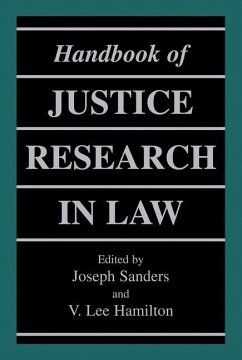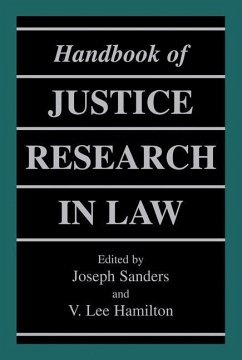
Rehnquist Court and Criminal Justice
Versandkostenfrei!
Versandfertig in 1-2 Wochen
65,99 €
inkl. MwSt.

PAYBACK Punkte
33 °P sammeln!
By analyzing the perspectives and influential decisions of individual justices on the Rehnquist Court (1986-2005), this volume reveals how a divided Supreme Court limited the scope of rights affecting criminal justice without fulfilling conservatives' goal of eliminating foundational concepts established during the Warren Court era. The era's generally conservative Supreme Court preserved rights in several contexts because individual justices do not necessarily view all constitutional rights issues through a simple, consistent philosophical lens.














